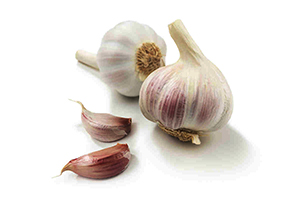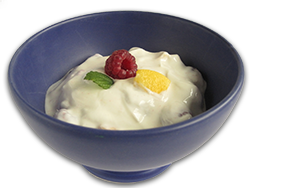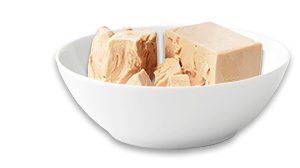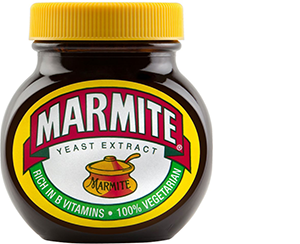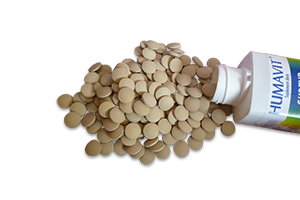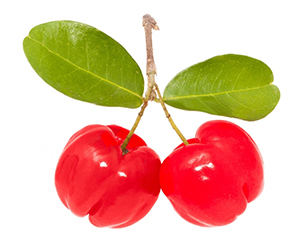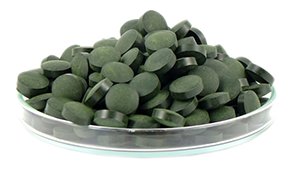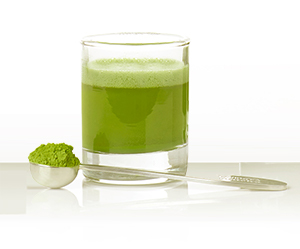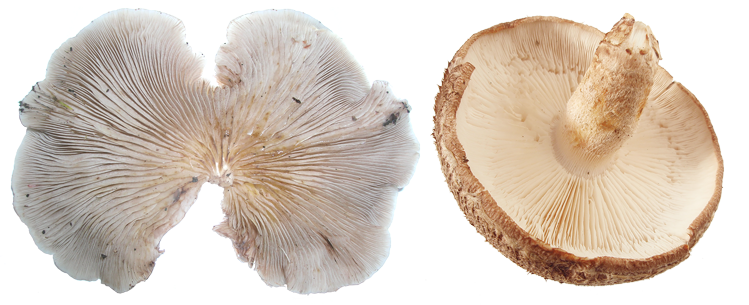Paediatrician Consults

How can we avoid infection when children are back in school, kindergarten or crèche after summer holidays in the autumn?
School epidemics
Canadian doctors after multiyear observation have found dramatic rise of asthma exacerbation among school children in various countries. The outbreak of this phenomenon happens just after a new school year beginning.
The rise asthma exacerbation is closely related to the rise of upper respiratory tract infections in te same season. However simple infections are not registered in contraray to asthma exacerbation. This also very closely corelated in time of the school year beginning. Authors applied mathematical modeling to estimate the exact timing and magnitude of these September peaks in Canada. In school-age children, the asthma hospitalization peak occurred on average 17.7 days after Labor Day (first Sunday of September and approximatelly 3 weeks from the school year beginng. When school year starts September 1st (Canada, Scotland) it happened in week 38, and week 35 when school year starts August 15th (Sweden, England) (see the figure).
The scientists believe that this is because of two reasons: very high rise of rhinoviruses causing seasonal respiratory tract infections in children (see figure) and also lack of immune stimuli due to decreased or no contacts with children of the same age during summer holidays.
How could we prevent September infections and how could we ease them?
- Heal underlying disease (if there is any)
- Dress accordingly to the air temperature
- Avoid sudden temperature changes
- Ensure appropriate diet including immune supporting supplements
- Isolate children from sick persons
- Not sending sick children to school, kindergartden or crèche
- Complete missing vaccinations
- Manage the stress related to the school beginning
References: (pdf files in English):
- Sears MR, Johnston NW, Understanding the September asthma epidemic J.Allergy Clin.Immunol. 2007; 120: 526-9.
- Johnston NW, Johnston SL et al. The September epidemic of asthma exacerbation in children, search for etiology J.Allergy Clin.Immunol. 2005; 112: 132-8.
- Johnston NW and Sears MR, The epidemiology of asthma exacerbations Thorax 2006; 61: 722-8.
- Johnston NW, Johnston SL, et al The September epidemic of asthma hospitalization: School children as disease vectors J Allergy Clin.Immunol.2006;117:557-62.
Defining Toughness (Resilience)

Men in particular often confuse toughness with strength, thinking that being strong is automatically the same as being tough, when in fact the two are distinct qualities. As Erwan Le Corre, founder of MovNat, says, “Some people with great muscular strength may lack toughness and easily crumble when circumstances become too challenging. On the other hand, some people with no particularly great muscular strength may be very tough, i.e., capable of overcoming stressful, difficult situations or environments.”
Toughness is the ability to perform well regardless of circumstances. That might mean performing well when you are sick or injured, but it also might mean performing well when your workout gear includes trees and rocks instead of pull-up bars and barbells. “Toughness . . . is the strength, or ability, to withstand adverse conditions,” according to Le Corre.
Being able to do that requires both mental and physical toughness. No amount of mental toughness alone will keep you from freezing in cold temperatures, but if you’ve combined mental training with cold tolerance conditioning, for example, then you’ll fare much better.
Toughen up organism
Hardening the body is a proven, effective and cheap way to support immunity. Just end your bath with a cold shower or use alternating showers. Pour warm water over your body for half a minute and then cold water for a few seconds. Attention! Hardening should be started gradually and only in healthy people. Temperature differences must be changed gradually, and the hardening procedure must always be ended with a bath in warm water.
The positive impact of “cold training” is well known among people living in cold climate countries like Finland and Russia. There are established so called “walrus clubs” where the member have physical activity in very cold conditions. It is often having group bath in freezing water. The members perform such activity regularly and enjoy good health. Their organisms become toughen up.
When you exercise in very cold weather, a number of physiological and mental changes take place that will set you up for a great racing season later this year. Plus, who doesn’t love the feeling of breathing in crisp winter air (followed by a mug of hot chocolate)?
- You will give your heart a workout
- You’ll improve your mind-body connection
- You’ll get mentally tougher
- You’ll keep weight gain at bay
- You’ll be in a better physical shape
- You’ll avoid winter blues
- You’ll get stronger immune system
Remember: Be sure to stay hydrated during cold weather.
Avoiding unnecessary Antibiotics
Antibiotics are important drugs. Many antibiotics can successfully treat infections caused by bacteria (bacterial infections). Antibiotics can prevent the spread of disease. And antibiotics can reduce serious disease complications.
However the overuse and misuse of antibiotics are key factors leading to antibiotic resistance. The general public, health care providers and hospitals all can help ensure correct use of the drugs. This can lessen the growth of antibiotic resistance.
Overuse of antibiotics
The overuse of antibiotics — especially taking antibiotics when they're not the correct treatment — promotes antibiotic resistance. According to the Centers for Disease Control and Prevention, about one-third of antibiotic use in people is not needed nor appropriate.
Antibiotics treat infections caused by bacteria. But they don't treat infections caused by viruses (viral infections). For example, an antibiotic is the correct treatment for strep throat, which is caused by bacteria. But it's not the right treatment for most sore throats, which are caused by viruses.
Other common viral infections that aren't helped by the use of antibiotics include:
- Cold or runny nose
- Flu (influenza)
- Bronchitis (viral origin)
- Most coughs
- Some ear infections
- Some sinus infections (viral origin)
- Stomach flu
- Coronavirus disease 2019 (COVID-19)
- Whooping cough (viral origin)
Taking an antibiotic for a viral infection:
- Won't cure the infection
- Won't keep other people from getting sick
- Won't help you or your child feel better
- May cause needless and harmful side effects
- Promotes antibiotic resistance
If you take an antibiotic when you have a viral infection, the antibiotic attacks bacteria in your body. These are bacteria that are helpful or are not causing disease. This incorrect treatment can then promote antibiotic-resistant properties in harmless bacteria that can be shared with other bacteria. Or it can create an opportunity for potentially harmful bacteria to replace the harmless ones.
Antibiotics and Immune System
Antibiotics can have adverse effects on your immune system. The immune system is your body's defense against invasive bacteria, viruses, and other harmful pathogens. This infection-fighting work happens on a cellular level: White blood cells (leukocytes) fight infections, B cells make antibodies to fight bacteria, and T cells destroy infected cells.
"Sometimes, the body's immune system cannot fight the bacterial infection off alone, which is when antibiotics enter the picture," says Kathleen Dass, MD, a Michigan-based immunologist and allergist. Antibiotics work to either kill off bacteria, or prevent them from reproducing, she explains.
However, these powerful drugs are not without a downside. For instance, taking antibiotics can destroy the normal, healthy bacteria in your gut. This can affect the functioning of your digestive system, metabolism, and parts of the immune system that are in the digestive tract.
The Dark Side of Antibiotics: Adverse Effects on the Infant Immune Defense Against Infection
Mental and Emotional Well-Being
Parents know that it’s nearly impossible to keep young child from touching, smelling and licking nearly everything they come into contact with. And although it is not always hygienic, it helps the child's body to learn about different microorganisms and build immunity. Yet, we’re less often aware of the impact of psychological and mental “immunity” and the impact this plays on our child’s health and wellbeing.
Having good mental health is key to the healthy development of every child. Kids need good mental health to deal with challenges and adapt to change, and so they can feel good about themselves, build strong relationships with others and live a happy and ‘healthy’ life, immune from the multitude of things that can undermine health.
The key to both physical and mental wellbeing is a healthy immune system – sometimes called resilience. And as parents, we can boost this immune system by supporting lifestyle factors that can build both physical immunity and psychological resilience to and ensure our kids live their best lives.
Scientists from Indonesia have shown how the emotional well-being boosts the human body immune response. Indicators showed the increasing immune response could observe objectively through many parameters in saliva, blood, and plasma. Increasing body immune response means improving its resistance towards infection. Psychological well-being could make the quality life of people be better. Psychological well-being made people prosperous, themselves, their families and communities. In addition, psychological well-being could improve the human body immune response, enhance resistance towards diseases (including infectious diseases), and make life more prosperous.
The results of Swedish study indicate that psychological stress may have a general effect on the immune system, causing not only an immune suppression, but also an imbalance that may possibly contribute to an autoimmune reaction against β cells. Moreover, children exposed to psychological stress, especially serious life events, induce an immune response against diabetes-related autoantigens. This may indicate an autoimmune reaction against the insulin-producing β cells, which, in some individuals, initiate progression toward T1D.
Literature
- Abdurachman SA, Herawati N. The Role of Psychological Well-being in Boosting Immune Response: An Optimal Effort for Tackling Infection Afr J Infect Dis. 2018; 12(1 Suppl): 54–61.
- Carlsson E., Frostell A., Ludvigsson J and Faresjö M. Psychological Stress in Children May Alter the Immune Response J.Immunol (2014) 192 (5): 2071–2081.
Immunologists Consults
To vaccinate or not to vaccinate - that is the question.

The only answer is: V a c c i n a t e !
A child is born with the so-called innate immunity. primary immunity. Unfortunately, these disease-protecting antibodies (antigens) given to you by your mother last only for the first three months after birth. Then, until the age of nine months, the baby's immune system deteriorates. He is only learning to recognize the enemy, i.e. viruses and bacteria and to produce a suitable weapon against them - antibodies. Thanks to vaccines, he learns faster and more effectively.
Vaccine - this is nothing more than weakened or dead pathogenic microorganisms introduced into the body, provoking the immune system to produce antibodies. It is training that prepares the body to instantly recognize germs and send an army of antibodies against them. This army will either protect the child from the infection, or at least significantly mitigate its course. In order for the acquired immunity to last for many years, it is necessary to take the so-called booster doses of the vaccine.
Simply put, vaccines save lives. You have the power to protect your baby from dangerous illnesses like measles, tetanus and hepatitis. Being a parent is a big responsibility, and the best thing you can do for your child's health is to learn the facts so that you can make the best choices.
Thanks to our nation's successful vaccination program, parents today have been spared witnessing the devastating effects of many diseases. Polio, for example, paralyzed millions of children worldwide before the vaccine was created.
Diseases such as hepatitis, pertussis and measles can still infect children that are not protected. In fact, each year the press publishes stories of disease outbreaks in undervaccinated communities across the Europe and the United States. Since 2010, we have been experiencing large outbreaks of pertussis across the country. In 2012, there were 48,277 cases of pertussis and 20 deaths; in 2013, there were over 24,000 confirmed cases of pertussis in the U.S.; in 2014 there were 28,660 reported cases, and the outbreaks continue in 2015. In addition, there are currently a record number of measles cases in the U.S. In 2014, 644 cases of measles were reported to the CDC and like pertussis, measles oubreaks are continuing to affect the U.S. in 2015. The majority of measles cases reported in 2014 were in people who were unvaccinated or who had an unknown vaccination status.
NHS vaccinations and when to have them
It's important that vaccines are given on time for the best protection, but if you or your child missed a vaccine, contact your GP to catch up.
NHS vaccination schedule
Vaccines for babies under 1 year old
| Age | Vaccines |
|---|---|
| 8 weeks | |
|
12 weeks |
6-in-1 vaccine (2nd dose) Rotavirus vaccine (2nd dose) |
|
16 weeks |
6-in-1 vaccine (3rd dose) MenB vaccine (2nd dose) |
Vaccines for children aged 1 to 15
| Age | Vaccines |
|---|---|
|
1 year |
Hib/MenC vaccine (1st dose) MenB vaccine (2nd dose) Pneumococcal vacine (2nd dose) |
|
2 - 15 years |
Children's flu 2 (every year until children finish Year 11 of secondary school) |
|
3 years and 4 months |
MMR vaccine (2nd dose) |
|
12 to 13 years |
|
|
14 years |
Vaccines for adults and vaccines for pregnant women
→ read more NHS vaccination programme




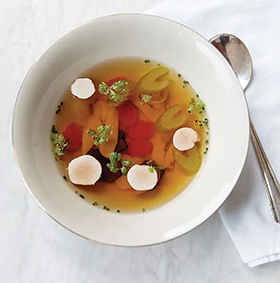 Make no bones about it – chicken soup is the nation’s go-to dish when we’re feeling blue or sick - but is there more to this brothy tonic than its comforting connotations? The broad survey revealed the majority of us find sanctuary in the warming goodness of chicken soup – but why are boiled bones so restorative? With the help of nutritionist Jo Lewin, we discovered that the classic tonic delivers more than just a placebo high…
Make no bones about it – chicken soup is the nation’s go-to dish when we’re feeling blue or sick - but is there more to this brothy tonic than its comforting connotations? The broad survey revealed the majority of us find sanctuary in the warming goodness of chicken soup – but why are boiled bones so restorative? With the help of nutritionist Jo Lewin, we discovered that the classic tonic delivers more than just a placebo high…